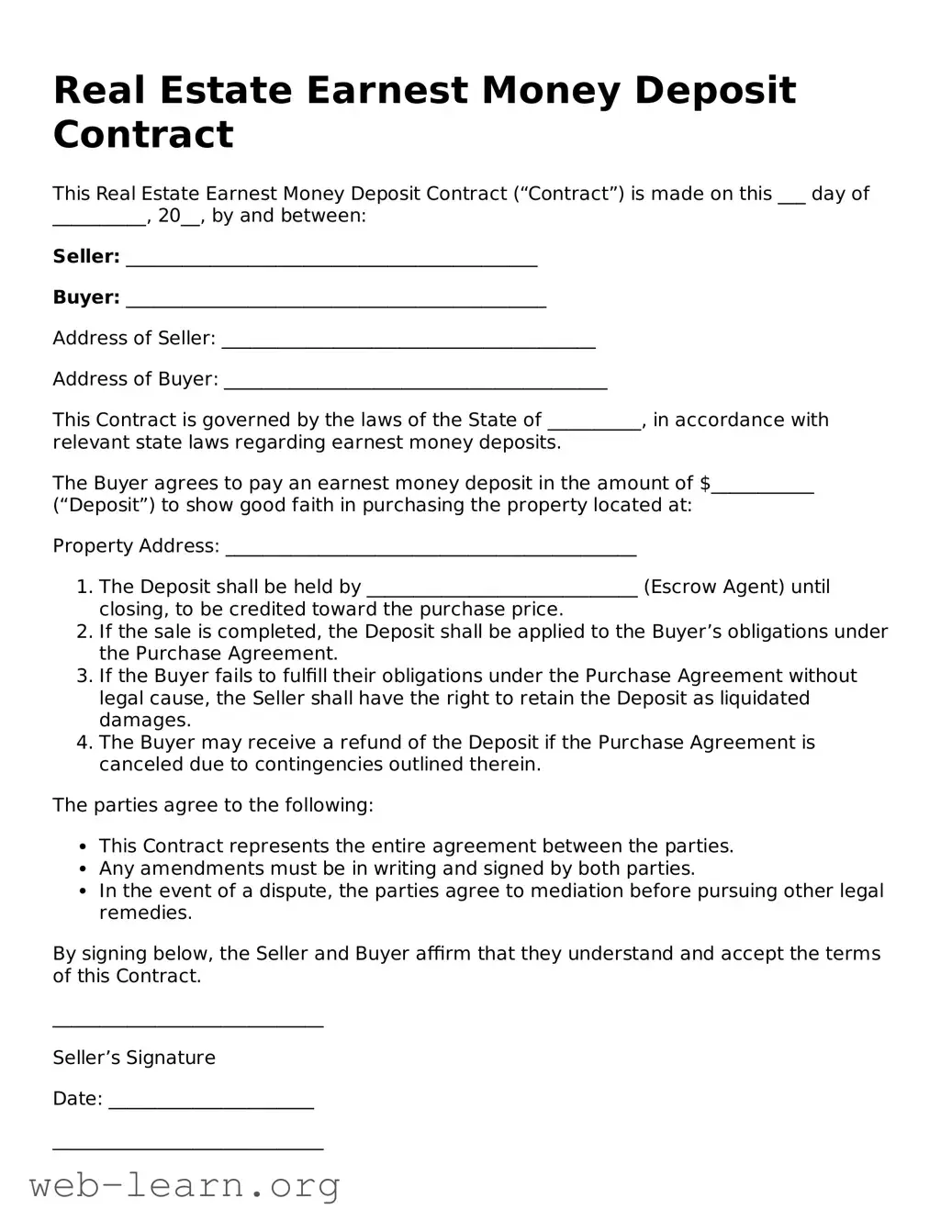Real Estate Earnest Money Deposit Contract
This Real Estate Earnest Money Deposit Contract (“Contract”) is made on this ___ day of __________, 20__, by and between:
Seller: ____________________________________________
Buyer: _____________________________________________
Address of Seller: ________________________________________
Address of Buyer: _________________________________________
This Contract is governed by the laws of the State of __________, in accordance with relevant state laws regarding earnest money deposits.
The Buyer agrees to pay an earnest money deposit in the amount of $___________ (“Deposit”) to show good faith in purchasing the property located at:
Property Address: ____________________________________________
- The Deposit shall be held by _____________________________ (Escrow Agent) until closing, to be credited toward the purchase price.
- If the sale is completed, the Deposit shall be applied to the Buyer’s obligations under the Purchase Agreement.
- If the Buyer fails to fulfill their obligations under the Purchase Agreement without legal cause, the Seller shall have the right to retain the Deposit as liquidated damages.
- The Buyer may receive a refund of the Deposit if the Purchase Agreement is canceled due to contingencies outlined therein.
The parties agree to the following:
- This Contract represents the entire agreement between the parties.
- Any amendments must be in writing and signed by both parties.
- In the event of a dispute, the parties agree to mediation before pursuing other legal remedies.
By signing below, the Seller and Buyer affirm that they understand and accept the terms of this Contract.
_____________________________
Seller’s Signature
Date: ______________________
_____________________________
Buyer’s Signature
Date: ______________________
This document is intended to outline the agreement between the Buyer and Seller regarding the earnest money deposit. It is advisable for both parties to consult with a legal professional prior to signing.
